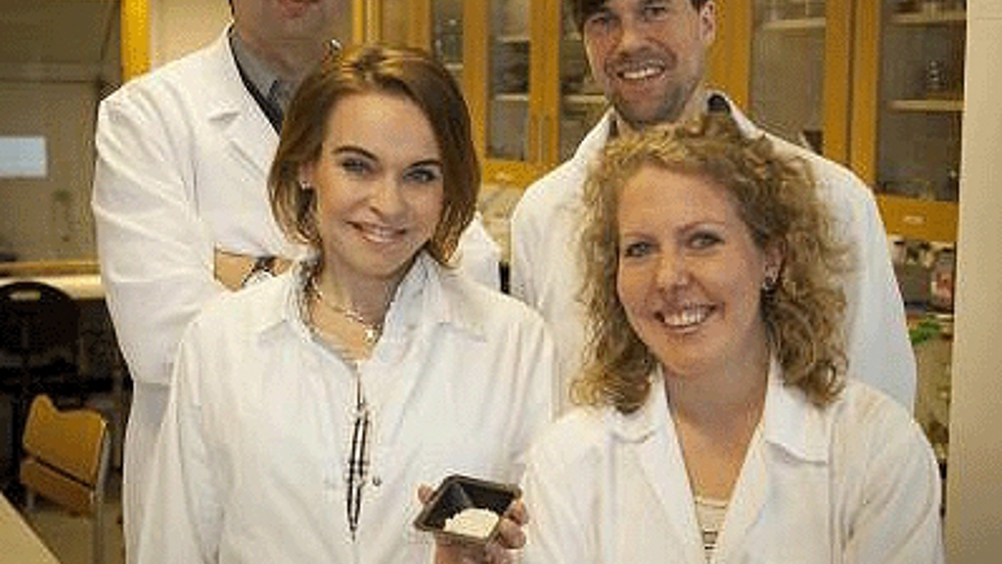New material demonstrates record breaking properties
Researchers from Uppsala University in Sweden have developed a material claimed to have record breaking surface area and water adsorption properties.

The magnesium carbonate material, dubbed Upsalite, is expected to reduce the amount of energy needed to control environmental moisture in the electronics and drug formulation industry as well as in hockey rinks and warehouses. It can also be used for collection of toxic waste, chemicals or oil spill and in drug delivery systems, for odour control and sanitation after fire.
‘In contrast to what has been claimed for more than 100 years in the scientific literature, we have found that amorphous magnesium carbonate can be made in a very simple, low-temperature process,’ said Johan Goméz de la Torre, a researcher from the Nanotechnology and Functional Materials division at Uppsala.
While ordered forms of magnesium carbonate, both with and without water in the structure, are abundant in nature, water-free disordered forms have been proven extremely difficult to make. In 1908, German researchers claimed that the material could not be made in the same way as other disordered carbonates, namely by bubbling CO2 through an alcoholic suspension. Subsequent studies in 1926 and 1961 came to the same conclusion.
Register now to continue reading
Thanks for visiting The Engineer. You’ve now reached your monthly limit of news stories. Register for free to unlock unlimited access to all of our news coverage, as well as premium content including opinion, in-depth features and special reports.
Benefits of registering
-
In-depth insights and coverage of key emerging trends
-
Unrestricted access to special reports throughout the year
-
Daily technology news delivered straight to your inbox










National Gas receives funding to develop Gravitricity underground hydrogen storage system
One single rock salt mine - Winsford - has 23 <i>MILLION </i>cubic metres of void and even allowing for 10% of that void set aside for hazardous waste...